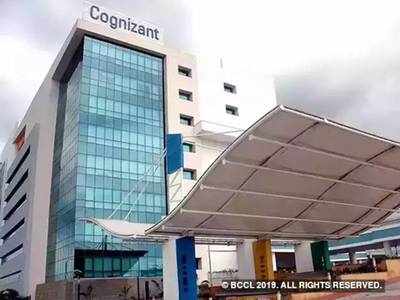
Cognizant will ask 400 more executives to leave
by Shilpa Phadnis(File photo)
BENGALURU: The churn at Cognizant will continue. Around 400 executives holding the title of directors, senior directors, associate vice-presidents (AVPs), VPs and SVPs, would be asked to leave the firm, sources said. This, they said, would be done in a staggered manner.
Two years ago, Cognizant laid off about 200 senior employees at the director level and above. The year before that, it offered a voluntary separation scheme to 400 senior employees. But CEO Brian Humphries clearly thinks there are still too many people in the middle and top.
This time around, the severance package has shrunk from 20 weeks' pay to three months’ pay plus one-week pay for every year of service completed.
When TOI contacted Cognizant on the matter, its spokesperson said, “In a people-intensive business like ours, effectively managing our workforce is a key element of aligning our cost structure with revenue. We have 290,000 employees serving clients worldwide. Like all services firms, we routinely manage supply and demand with a bench of unutilised employees. What distinguishes us is that we are enhancing our bench policy by offering additional cash and extended health benefits to those who are or will become unutilised and for whom we unfortunately do not foresee future opportunities.”
The latest exercise is part of its realignment programme to improve cost structure and delivery effectiveness. Under this programme, in 2019, it incurred $22 million of executive transition costs (paid to leaders who leave the firm), $64 million in employee separation costs, $45 million in employee retention costs and $38 million in third-party realignment costs. “We anticipate that the employee separations completed as part of our realignment programme will reduce our compensation expense by approximately $140 million on an annualised basis,” the company said in its 2019 annual report.
Rod Bourgeois, managing partner in US-based DeepDive Equity Research, said that prior to Humphries taking the helm, the company had become overly complacent – somewhat resting on its past laurels. And the culture, he said, had drifted away from being a meritocracy. He said Humphries’ is laying a foundation that can enable Cognizant to become a share-gaining growth company again, fuelled by a culture of performance accountability and client centricity.
“We think these changes are causing a mix of wanted and unwanted attrition at senior levels of Cognizant’s organization. Wanted attrition has occurred in cases where staff were not sufficiently performing or serving as ideal role models for the rest of the organization. Essentially, we think some senior-level attrition has been needed to push Cognizant toward a performance-oriented culture, pivot Cognizant’s skills toward digital, and better optimize its cost structure,” he said
There is some concern in India that some of top roles that were previously based here are no longer so. Leaders of two of its four practice areas -- digital systems and technology is headed by Greg Hyttenrauch, who is based in London, and digital operations is headed by Ganesh Ayyar, who is based in Singapore. Phil Fersht, CEO of HfS Research said, Humphries has been working hard to instill a renewed culture on Cognizant, and moving key leadership centres away from India and closer to the firms' clients in US and UK is part of his strategy.
“The reality is that Cognizant had stagnated since Gordon Coburn's departure in 2016 and Elliott Management's acrimonious exit in 2018, and Humphries has been "drinking from a firehose" since he joined to right the ship,” he said.
However, Cognizant said the base location of business heads is entirely incidental and has never been a consideration in decision-making. “We are proud to have been a truly global company throughout our more than 25 years of existence. Now that we are more actively building out our business outside the US, a more global team makes even more sense,” it said.